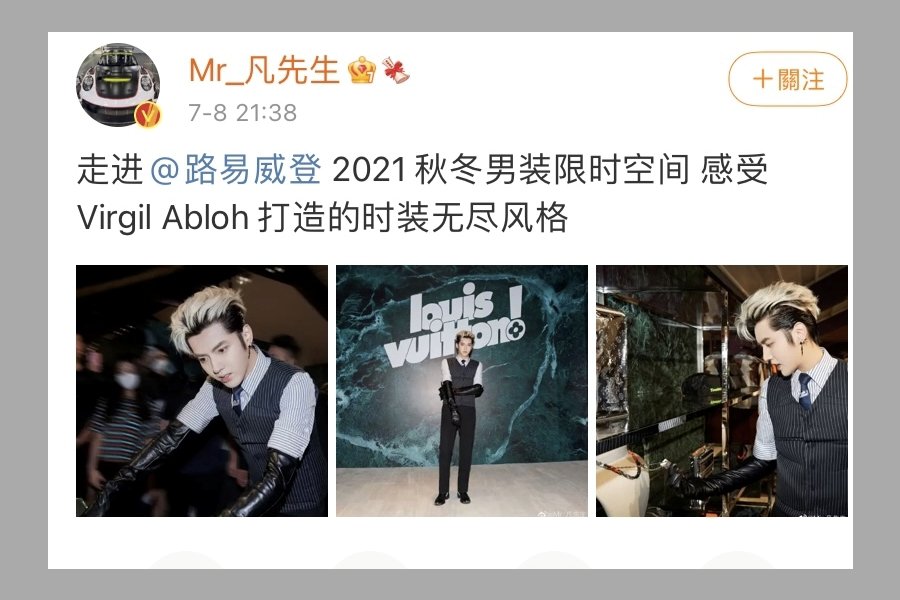Early this morning, Bulgari issued a brief statement on Weibo, China's Twitter-like social-media platform, to announce that it was terminating its partnership with Chinese-Canadian pop star Kris Wu, effective immediately.
The fashion house joins a growing list of more than 10 brands (as of publication time) that have cut ties with Wu after accusations of rape and sex with teenage girls surfaced. Wu and his management have denied the allegations.
In a surprising twist, one brand's announcement that it was dropping Wu coincided with a livestream sale, which drew a huge audience and turned into a windfall for the brand.
The brands dropping Wu include Porsche, Tuborg beer, Tencent Video, Master Kong Ice Tea, haircare brand Seeyoung, Ethereal Sound (an app affiliated with China Media Group), detergent brand Liby and cosmetics brand Kans, Louis Vuitton and L'Oréal Men Expert. Lancôme, Tempo, kitchen appliance manufacturer Vatti, snacks and confectionary brand Bestore and video game King of Glory all confirmed that they had ended partnerships with Wu and did not renew his contract.
According to Chinese media, Wu has at least 16 brand partnerships. L'Oreal's Kiehl's brand deleted social-media posts showing previous cooperations with Wu. Other brands also deleted or hid social-media posts, advertisements and videos including the star.
Kans, a Shanghai-based cosmetics brand, was the first to take action, announcing Sunday evening it would end a contract with Wu. The announcement on Weibo drew a whirlwind of attention and turned into a success for the brand. During a Taobao livestream sale, the brand's audience grew from no more than 100 to almost 3.7 million, and total sales reached RMB 5.42 million (US$832,000).
Previously considered one of China’s most valuable faces, Wu's annual income in 2017 is estimated at RMB 150 million (US$23 million), ranking him in 10th place on a Forbes list of China celebrities.
Amid the accusations, which originated with 19-year-old university student Du Meizhu, Chinese netizens are calling for boycotts of Wu.
Global Times reported that Wu in the past faced allegations of harassment from singer Lin Xiya and online celebrity Xiao Gna.








